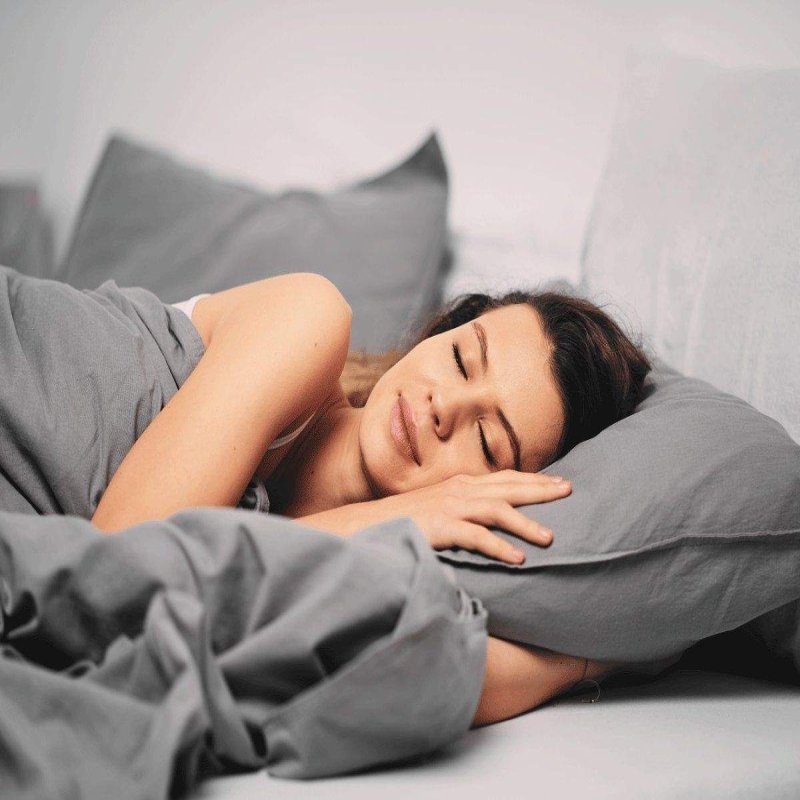
We all have some sense of the relationship between sleep and health. After all, everyone has experienced the fatigue, crankiness, or lack of focus that so often occurs after a night of poor sleep. However, what many of us are not aware of is the fact that sleep quality has a far deeper impact on our critical body functions, repair, and recovery, as well as on chronic medical conditions.
Let’s explore how it works and what you can do to improve it!
Good Sleep is Important
Although the body appears from the outside to be still and inactive during sleep, it is a time when the body is quite busy. During the night when we are asleep, the involuntary systems in our body are on overdrive. We restock our hormone supply, process significant toxins, and repair damaged tissues. Our body also generates vital white blood cells for immunity, eliminates the effects of stress, and processes heavy emotions.

Unfortunately, we have an epidemic of sleep disorders. Starting from trouble falling asleep to often interrupted sleep to actual insomnia, there are, however, several straightforward remedies you can follow. Sleeping soundly will increase your motivation to make further lifestyle changes. For example, when we sleep well, it is always easier to eat more healthily.
Sleeping is Ultimately a Gift of the Pineal Gland!
We fall asleep due to the gifts of the pineal gland, a small ant-sized lobe near the middle of our skull in the interbrain. Although its functions aren’t fully understood yet, researchers do know that it produces and regulates some hormones. It also plays a critical role in regulating sleep patterns.
Sleep patterns are also called circadian rhythms. Following our circadian rhythm, the pineal gland secretes a neurotransmitter and hormone called melatonin.
Melatonin suppresses the activity of other neurotransmitters and helps to calm the brain (in part by countering the stress hormone cortisol from our adrenal gland). Additionally, as we become more drowsy, the brain slowly begins to turn off our voluntary skeletal muscle functions. As a result, we don’t move around too much, try to act out our dreams, or disrupt the body’s internal revitalization work.
Note: This is also why it’s so hard to move your limbs or shout out in response to a nightmare.
What Affects your Sleep Quality?
To sleep well, melatonin should be rising steadily and cortisol should be rock-bottom low at bedtime. But there’s a catch here. The pineal gland secretes melatonin largely in response to darkness. Interestingly, our evening cortisol levels are also the lowest in environments with low noise.
However, with our addictions to TV, mobiles, and laptops in the evening, our choices hinder natural pro-sleep chemical shifts. These devices mostly display full-spectrum light, which can confuse the brain about whether it’s nighttime or not.
We also, unfortunately, tend to watch shows or view emails that can be loud and/or stressful. For example, the evening news, a crime show, work email, or the ever-longer to-do lists. Digesting a heavy meal eaten later in the evening can also prevent or interrupt sleep. Lack of manganese can also have a direct effect on sleep quality.
Some Healthy Habits to Fight Insomnia
For having an adequate and quality night's sleep, the first thing we can do is support “sleep hygiene." I am amazed at how often this is all you need in order to get better sleep.
- Help identify more calming, quieter evening activities, e.g., reading a book, taking a warm bath, going for a light stroll outdoors, playing with a pet, etc.
- I recommend no email, TV, next-day planning, or stressful conversations in the full hour before bedtime. If noise is an issue, I often recommend soft foam earplugs or the white noise of a fan.
- It is also important for the bedroom not to be too hot, as this can disrupt sleep during the night.
- Herbal tea (e.g., lavender or chamomile) can also help one relax and set the tone for sleep.
- I also recommend no food for a full two to three hours before bed. Also, no caffeinated food or drink after 2 p.m. (e.g., tea, coffee, soda, chocolate). Many of my patients are stunned to realize how much a late-evening, heavy meal prevents sound sleep.

However, there are many cases where pro-sleep behavior is simply not enough. For some clients, their brains simply aren’t able to make enough melatonin to ensure they sleep well all night. On the other hand, there can be a chemical imbalance preventing sufficient relaxation, and these need more than just lifestyle changes. But at the end of the day, lifestyle changes will matter in the long run.
Addressing the Root Cause is the Key
There are many sleep medications available today. These can be useful in emergencies when one is going through short-term trauma or stress. Unfortunately, all of them work essentially as mild sedatives and do not address the root cause of any long-term sleep disturbance.
They also come with a wide range of side effects that render them unacceptable for long-term use. It may range from a dry mouth to a stomach ache to a hangover-like fatigue the following day. It’s also important to know that many of these medications can increase the risk of both cancer and death.

If you are currently taking these medicines, I would recommend stopping them and encourage you to do so slowly (weaning). This will help you avoid any chemical backlash from a neurotransmitter imbalance.
Without restful sleep, it can be challenging for many of us to consider a lifestyle change. Speak to a trained professional who can work with you. Only a professional can understand your unique case and provide a unique intervention accordingly.
Disclaimer: The information and other content provided in this blog, or in any linked materials, are not intended and should not be construed as medical advice, nor is the information a substitute for professional medical expertise or treatment. If you or any other person has a medical concern, you should consult with your healthcare provider.


.png)


